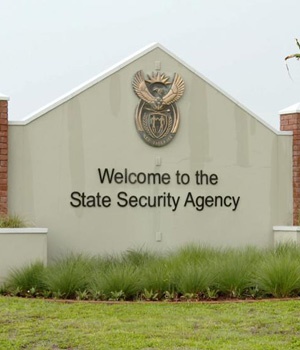
The move by Parliament to get the State Security Agency (SSA) to vet all its staff has sparked anxiety across a range of Parliament’s employees, who fear the institution is on a witch-hunt and that their jobs are on the line.
Parliament said, however, it was revetting its staff to determine the security competence of its officials – the SSA, which always conducted security vetting for organs of state, was merely facilitating the process.
Parliamentary spokesperson Luzuko Jacobs said Parliament’s security policy required that all employees needed to be vetted, and all staff appointments were subject to positive security clearances.
He said the vetting programme was an institutional initiative to screen all officials to allow Parliament to do its work “in the context of global and local security”.
He said a similar vetting exercise had been done in 2005, adding that Parliament’s senior managers had again been screened in the fourth Parliament (formed in 2009). Security-clearance certificates were valid for 10 to 15 years before they expired, he said.
But parliamentary staff said they feared the vetting process was targeting people who those in charge of Parliament wanted out of the system.
A parliamentary staffer said: “Sure there is someone the [Parliament] secretary is targeting. I think there is a specific target man, not everybody. I mean, vetting is not time-bound and is usually done once.”
Another source said it looked as if Parliament wanted to get to the bottom of how some parliamentary information had ended up in the hands of the media and opposition parties.
“Management has been paranoid about these leaks, but now the paranoia is trickling down to staff, because we are seen as suspects,” said the source.
DA chief whip John Steenhuisen criticised the move, saying Parliament was creating an apartheid-era style of administration by trying to tighten the grip on information flow.
“I don’t think it’s conducive to an open and transparent environment. An organisation like Parliament has a duty to be transparent.
“Why do you need to have this ‘kragdadige’ [forcible] obsession with security and information?”
But Jacobs responded: “Vetting is not a one-off exercise. It is determined by ongoing security assessment.”
Jacobs explained that, in addition to the actual vetting processes, the current programme focused on the security awareness of officials – to sensitise them to recruitment strategies used by intelligence agents, the minimum levels of vigilance required of them and how to handle information responsibly.
He would, however, not say what would happen to those employees who did not pass the security clearance, saying the outcomes of the vetting process would be dealt with on their individual merits.
It is also not clear what level of security clearance Parliament wants from its employees. The vetting system varies, with top security level clearance even requiring personal interviews with family members. Security clearance to the level of secret or top secret is valid for five years.
In a letter the secretary to Parliament, Gengezi Mgidlana, sent to parliamentary employees this week, he said the vetting would be conducted in terms of the National Strategic Intelligence Act as amended by the General Intelligence Laws Amendment Act.
“The SSA has a legal mandate to conduct security vetting on all organs of state. This project aims to determine the security competence of each official within the parliamentary administration,” he said.
Earlier this year, State Security Minister David Mahlobo told parliamentary journalists the SSA had a backlog of vetting applications and had resorted to delegating its responsibility




 Publications
Publications
 Partners
Partners








